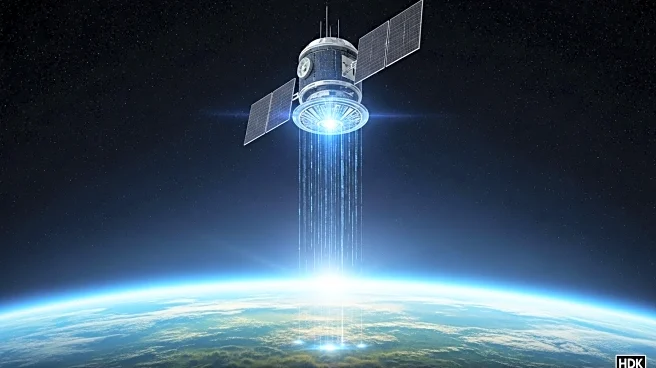What's Happening?
Tech companies are exploring the possibility of relocating data centers to space as a solution to their environmental impact. Data centers are known for their high energy consumption, with projections indicating a 165% increase in electricity demand by 2030. Over half of this energy comes from fossil fuels, posing a threat to climate progress. OpenAI CEO Sam Altman and other tech leaders have suggested placing data centers in space to utilize solar power and reduce pollution. The concept, while ambitious, faces challenges such as radiation exposure and maintenance difficulties. Despite these hurdles, startups like Starcloud and Lonestar Data Systems are investing in space-based data center technology.
Why It's Important?
The move to space-based data centers could significantly reduce the environmental footprint of these facilities, which are expected to consume up to 12% of the U.S.'s electricity by 2028. This shift could alleviate the burden on local communities affected by pollution and resource strain. Additionally, space-based centers could operate on continuous solar power, offering a sustainable energy solution. However, the high costs and technical challenges associated with space deployment remain significant barriers. The idea also highlights the lack of regulation in space, which could attract companies seeking fewer restrictions compared to Earth-based operations.
What's Next?
The development of space-based data centers is still in its early stages, with experimental launches planned by startups. The feasibility of large-scale deployment remains uncertain, as companies must overcome technical and economic challenges. The potential for reduced regulation in space may drive interest, but cost competitiveness with terrestrial centers is crucial. As technology advances, stakeholders will need to address the practicalities of space-based operations and consider the long-term implications for the industry and environment.
Beyond the Headlines
The concept of space-based data centers raises ethical and legal questions about the use of space resources and the potential impact on Earth's environment. The idea of a Dyson sphere, while theoretical, underscores the need for sustainable practices in technology development. The shift also reflects broader trends in the tech industry, where innovation is increasingly driven by environmental considerations and regulatory challenges.










